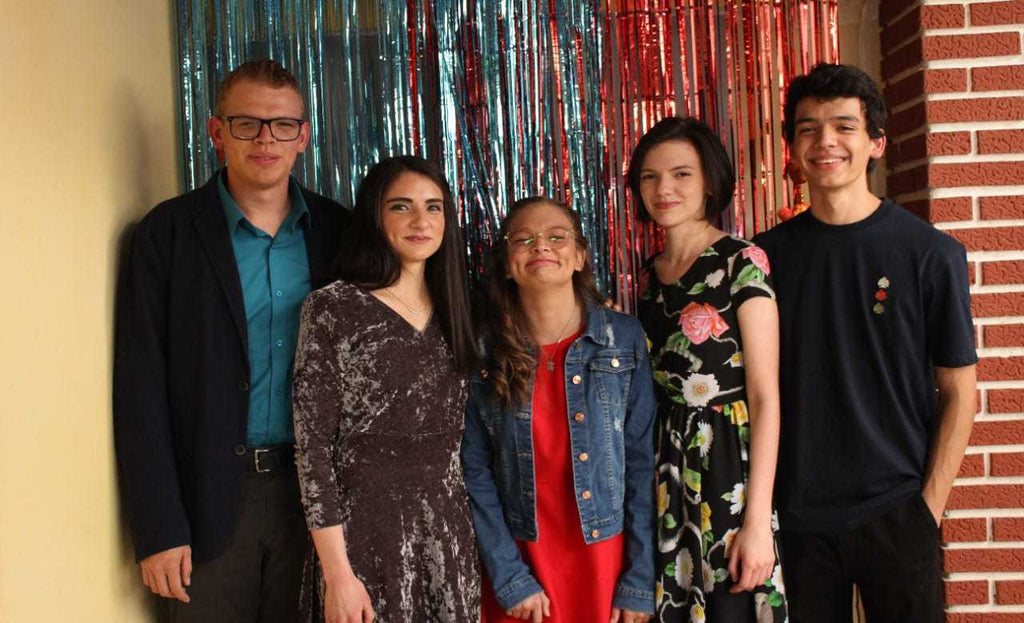

· By Maricel Saenz
From Frailes to San Francisco: A biotech intern's path to beanless coffee
By Monserrat Jiménez, Biotechnologist intern at Minus
When you grow up in a coffee area, coffee becomes an integral part of who you are, of your daily routine as well as your culture.

Around 75 years ago, my great-great-grandfather, Amparo Jiménez, decided to buy a piece of land in a small town in Costa Rica named Frailes.
At that time, he wanted to bring in an additional income by farming coffee. Little did he realize that this act would change the course of his life as well that of his descendants.
Top picture shows location of Frailes, Costa Rica

Picture left to right: Amparo Jiménez and Hortencia Piedra
To us, coffee is more than just a beverage. Throughout the years it has shaped our town’s culture and has nurtured its economic development as well as my family’s. If you find yourself in Frailes, be sure to know what cycle of the coffee season we are at because it will reflect on the town’s mood.
I grew up with four brothers and sisters. One decided to venture into agribusiness, another one into business administration, the other one as an aspiring coffee producer, the youngest still at school and myself, as a biotechnologist.

From left to right, Montse's brothers and sisters: Rolando, Karina, Lourdes y Andrés
To all of us, it is a growing concern of the impact climate change is having on coffee and viceversa. In recent years, we’ve combined our acquired knowledge to work on more sustainable coffee farming practices. We’ve experimented with different fertilizers such as coffee pulp and fungi soil and we’ve worked with micro algae to promote nutrient absorption (reducing the need for fertilizers and soil erosion).
However, it was clear to me that some of these sustainable practices were not viable on a large scale without seeing a decrease in yields. And so, it was because of this reality that I decided to pursue a scientific career focused on sustainability and the constant search for a better solution.
Enter Minus: A Compound Foods Company in 2023
I still remember the first time I heard of Minus Coffee. It sounded like the perfect mix of my passion for coffee, science, and sustainability.
Knowing that coffee was the source of most of my growth opportunities, both on a personal and professional level, I was extremely excited when I accepted my internship at the company. My goal at the end of it, was to give back to coffee. For it to be able to reinvent itself, keeping the culture alive but from a new, sustainable perspective.
My dream come true.
When we think of Minus, we think of its amazing ingredients, and, above all, the magical fermentation process it goes through. At my internship, I’ve had the opportunity to collaborate on the product development process. From working together with the fermentation team as well as evaluating the shelf-life of the product.
So what kind of projects was I involved in as a biotechnologist intern?

Yours truly, Monserrat Jiménez
My first stop was to explore the ingredients in our product. Each ingredient brings different aspects to the product and requires special tender love and care to achieve optimal results. For this, we explore the fermentation of the ingredients individually. Obtaining their analytical data and identify their impact on the final product. This provides us the opportunity to modify the ratios of each ingredient to be able to cater that silky smooth, delicious coffee flavor with notes of cocoa nib, cherry and sugar.

Parallel to the first project, with the fermentation team we’ve been head deep with microorganisms. Even though fermentation by itself is almost something magical, sometimes it needs some help to fit our desires. The first step to achieve this is to understand which microorganisms to work with. With the perfect combination of microorganisms, we would get the ideal coffee for every situation. Therefore, one of my projects was to isolate and identify microorganisms to expand the collection. Working with microbes is almost like working on solving a mystery detective case. In seeking to understand what is happening, it's important to collect all the evidence and go over all the pathways to interpret the results. Despite the complexity of the process, the conclusions are often fascinating.
The third stop on the shop was working with enzymes! Along with the microorganisms, other small bio-tools that can help us build our delicious beanless coffee are enzymes. These small factories take the components of our ingredients and transform them into new molecules. In this way, we manage to increase the number of compounds so microorganisms can work and promote the number of reactions that occur during the processing of products.
Finally, I collaborated on one of the fundamental studies for you, consumers: the awaited shelf-life! Over a long time, by analyzing the from final formulations of our products under specific environmental conditions, we were able to study from an analytical and mathematical approximations their behavior and evolution. Once these analyses are completed, we can decide on the necessary modifications to improve the product, no longer in terms of organoleptic characteristics, but on its life cycle.
I hope that the information I have gathered during this experience will contribute to the biomanufacturing revolution, which is always focused on real sustainability. In addition to all the knowledge I’ve gained at Minus, it has meant so much more to me on a personal level. Having the opportunity to be immersed in a work culture like Minus Coffee's represents an environment of personal development in itself, where respect, diversity, and, above all, creativity are the basis of daily work.
I hope you get the chance to be a part of it too!
P.D. If you are wondering what Frailes looks like and what's it like to grow in a coffee region- take a look below!




